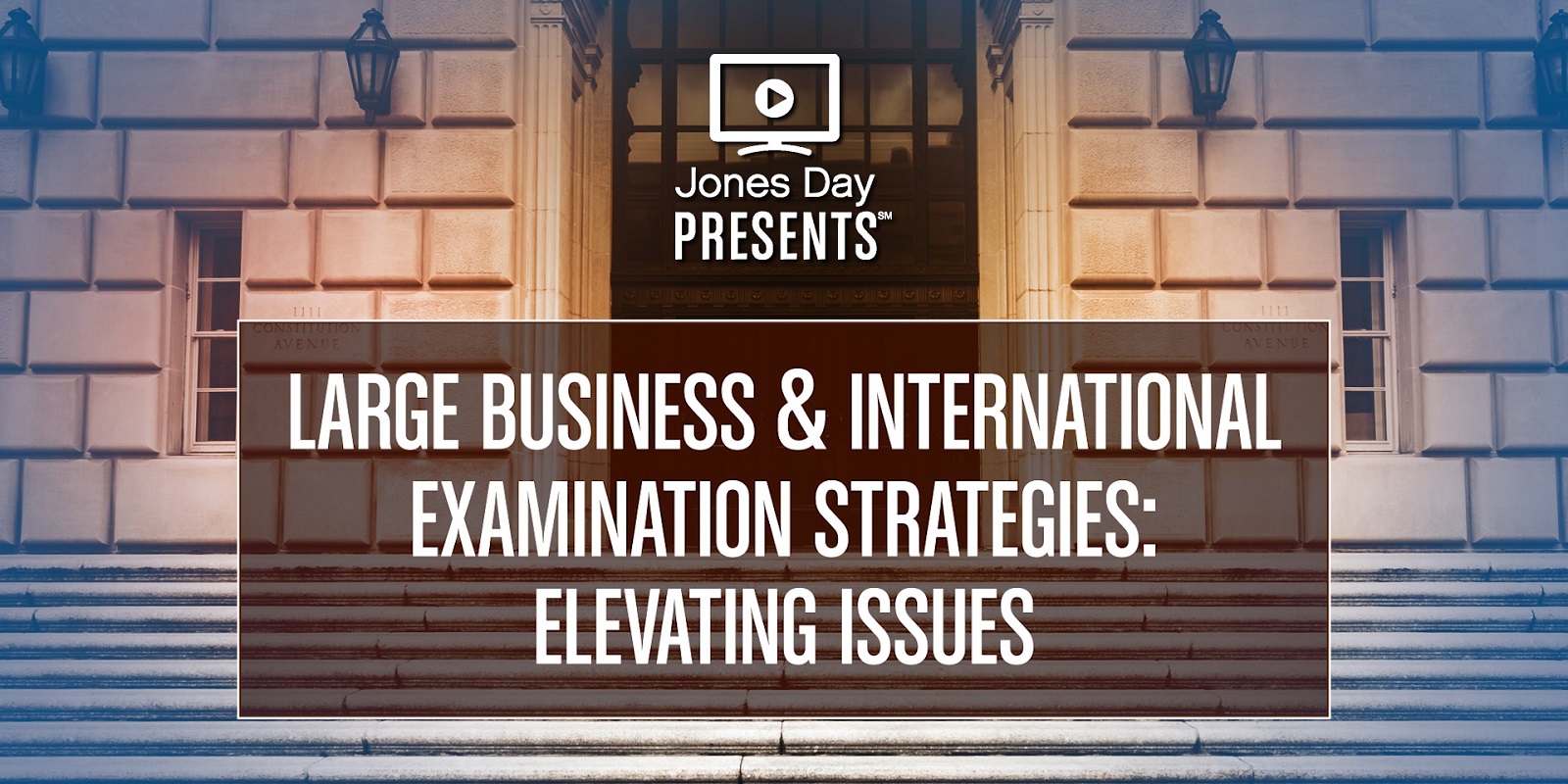
Jones Day Presents: LB&I Examination Strategies - Effective Strategies for Elevating Issues
In the fourth installment of Jones Day’s series of video presentations on the IRS's Large Business & International Division ("LB&I") exam procedures, partner and tax litigator Chuck Hodges explains how the IRS’s new process allows taxpayers to elevate issues to ensure they get the best result at the Exam Level.
Read the full transcript below:
Chuck Hodges:
In 2016, the IRS Large Business and International Division or LB&I changed its exam process. One of the things that they highlight in this new exam process is that the IRS should be more transparent. There should be more discussions between exam and the taxpayer. Well, of course, when those things happen, there may become instances where the examiner and the taxpayer don't see eye to eye. And in that instance, the taxpayer may need to elevate this issue to the next level in order to ensure that they're getting the best result that they can at the exam level.
Chuck Hodges:
I'm a tax litigator. I would speculate that 20% of my tax litigation cases could have been resolved at the examination or appeals level if one or two issues had been elevated by the taxpayer to management who would have wanted to hear the taxpayer's concerns. What exactly is elevation? Elevation is when the taxpayer needs to move up the chain of command with the exam group to address a disputed issue. Some examples.
Chuck Hodges:
Maybe you're dealing with an exam team where there's a lengthy delay, and then possibly even followed by a statute extension requesting upwards of 18 months to two year statute extension. What if you get one of the old kitchen sink IDRs that flies in the face of the issue by issue way that the LB&I is doing it now? What about an acknowledgement of facts where the IRS refuses to incorporate your relevant and undisputed facts?
Chuck Hodges:
Lastly, one that I had to use recently is just simply an arbitrary application of the law, where I knew if a manager talked to the exam team on a particular area of the law, they would be able to provide some guidance on the interpretation that would allow us to resolve the examination earlier. And it did. That one you use sparingly, but again, when you know it could help your case get resolved earlier. Now you think, "Gosh, does LB&I want this to happen?"
Chuck Hodges:
Yes, they don't want to waste their time and resources on issues that should not go any further beyond exam, and so they invite in the manual for taxpayers to elevate and to have the right to speak to a manager. So then I get asked a lot, "But when do you elevate?" Well, you can elevate at any point during the examination. But I tell folks, when you're that opening conference, that's the perfect time to at least ask, "If to the extent we have any issues during this examination, what is my chain of command as far as raising my concerns?"
Chuck Hodges:
And then everyone that's in the room for the IRS will then tell you who the chain of command is, and they'll tell you that here are the types of issues that you would come to each person for. We all know elevating issues can be uncomfortable, just like anytime you have to ask for a manager. It's an uncomfortable process, but it's necessary if you're trying to get to the right result in the shortest amount of time when dealing with LB&I exam.


